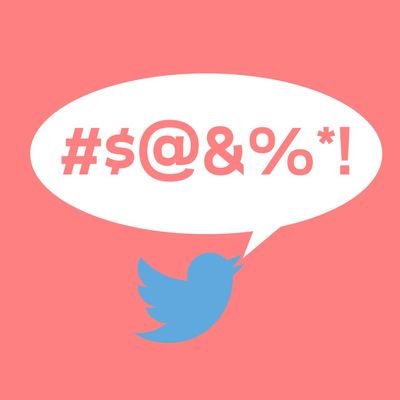
Though the battle over “#Gamergate,” which can only be described as an amorphous debate on issues ranging from misogyny in the gaming community to “ethics” in gaming journalism, has proliferated across nearly all media platforms, both online and off, most of its intensity and raw anger has been concentrated on Twitter. And that’s not a coincidence. For all that is wonderful about Twitter — and I do love the platform — there are few tools on the internet so conducive to trollery, to allowing a small number of individuals to target and terrorize their “enemies,” whether real or imagined.
Slate’s David Auerbach touches on one of the reasons for this: that Twitter’s immediacy and 140-character limit encourages users to quickly dash off barbed tweets that, because of their brevity, lack subtlety and therefore must resort to absolutism.
After cartoonist K. Thor Jensen got much flak for tweeting that all gamers should die, he apologized and concluded on this wise note: “Hashtag activism is an ineffective way of pursuing those goals. It literally gets you nowhere but pointless arguments with turds like me.” Even Jensen’s attitude that “Ed Champion has always been human shit and should be flushed down a toilet,” however accurate, would probably be phrased a bit more tactfully and substantively anywhere else. Twitter is a verbal minefield that encourages harassment while discouraging productive conversation, bringing out the worst in everyone from Leigh Alexander to Richard Dawkins to Donald Trump (not hard, admittedly).
This is all true, but there are other platforms that allow you to dash off opinions without much thought or effort. To understand why trolls thrive on Twitter you must first consider why they are less effective elsewhere. Facebook, for instance, has a far greater number of users, and yet #Gamergate supporters have had limited effect there. Facebook, unlike Twitter, forces users to use their real names, which at least somewhat mutes the vehemency that can spring forth when you know you won’t be held accountable for your actions.
But, perhaps even more important, Facebook has terrible discovery functionality, making it difficult for a swarm of a few dozen trolls to monitor for new mentions of their pet issue and pounce all at once, thereby magnifying their voice. If you’ve tweeted at all about #Gamergate within the last few weeks, chances are you’ve experienced a drive-by barrage of @-mentions from Twitter accounts with only a few dozen followers each, many spouting off a few generic pro-Gamergate catchphrases and supportive links. Within minutes, they’re gone, on to swarm another user like a cloud of gnats.
After I tweeted a fairly anodyne mention of a ClickHole article about #Gamergate, for instance, this tweet appeared in my @-mention stream:

This guy and a few other dozen like him are simply sitting at search.twitter.com with #Gamergate plugged into the search bar and hitting the refresh icon. Few other networks offer this kind of real-time discoverablity.
Twitter is also a magnet for trolling because it sets all interactions as equal. On Facebook, it’s easy for me to toggle my account so only my friends can comment on my post, and if a vituperative comment does make its way onto my wall, I can delete it. On Twitter, anyone can @-reply you, and the @-replies appear in reverse chronological order, giving preference to those able to swarm you with the most messages. And you can’t delete a reply on Twitter like you can on Facebook (and virtually every other platform), because the reply exists on the commenter’s profile, not the profile on which he’s commenting. While you can mute or block a user, the initial damage has already been done, and you know that those hateful tweets will continue to exist for others to see even if you can’t.
Of course, trolls also like to hang out in article comment sections and message boards, but article comment sections are relegated to the bottom of articles, skipped over by most users, and easy to ignore. Message boards aren’t visited by all that many people and are, when moderated well (which the best boards are), adept at weeding out and banning trolls.
All that being said, the attributes that make Twitter a magnet for trolls also make it great for news and entertainment. I love hearing about a news event that interests me and then utilizing search.twitter.com to see real-time commentary and jokes. The reason Twitter, rather than Facebook, was a major source for news out of Ferguson is because it was easy to find and surface tweets from on-the-ground protesters and journalists there.
In some ways, then, the victims of trolls are the collateral damage of a wonderful real-time conversation ecosystem. The question is whether the benefits of this ecosystem outweigh the real damage caused when vulnerable users are threatened with rape and death. And the worst supporters of #Gamergate are making it increasingly difficult for this question to be ignored.
Simon Owens is a technology and media journalist living in Washington, D.C. Follow him on Twitter, Facebook, or Google+. Email him at simonowens@gmail.com. This post is adapted from a piece he published on his website here.




